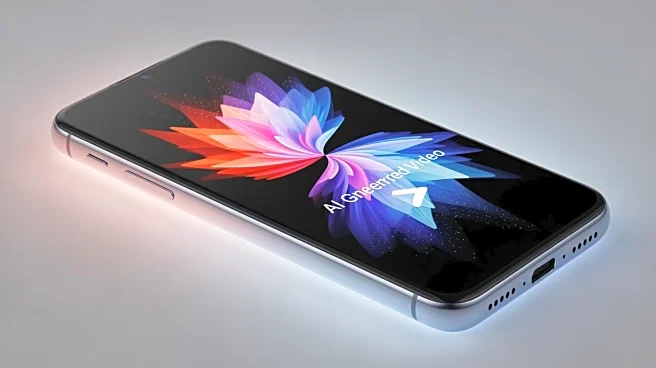What's Happening?
OpenAI has launched its Sora app on Android, expanding its reach beyond iOS. The app, which functions as a social media platform similar to TikTok or YouTube Shorts, allows users to create AI-generated
videos featuring their own likeness and voice. The app's standout feature, Cameo, enables users to scan their facial features using a smartphone camera, allowing them to star in AI-generated videos. This feature has been praised for its speed and accuracy, although some users have noted slight discrepancies in body proportions. The app is currently available in the U.S., Canada, South Korea, and Japan, with plans for further expansion.
Why It's Important?
The introduction of Sora to Android users marks a significant step in the evolution of AI-driven content creation. By allowing users to insert themselves into AI-generated videos, OpenAI is pushing the boundaries of personal media and social interaction. This development could have implications for content creators, influencers, and everyday users looking to engage with new forms of digital expression. The app's ability to generate realistic videos without advertisements or subscription fees also sets it apart from competitors, potentially influencing the landscape of social media and digital content platforms.
Beyond the Headlines
The Sora app raises questions about privacy and the ethical use of AI in media. By scanning and using personal likenesses, the app challenges traditional notions of identity and consent in digital spaces. Additionally, the app's ability to replicate voices and appearances could lead to concerns about deepfakes and the authenticity of online content. As AI technology continues to advance, these issues will likely become more prominent, necessitating discussions around regulation and user protection.









